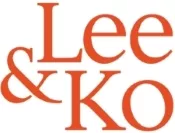- within Antitrust/Competition Law topic(s)
- with Inhouse Counsel
- with readers working within the Banking & Credit, Business & Consumer Services and Technology industries
On December 19, 2023, the Korea Fair Trade Commission (KFTC) announced its proposal to enact the "Platform Competition Promotion Act" (PCPA) for ex-ante regulation of platforms by designating "dominant platform operators." This year, the KFTC formed the "Platform Monopoly Regulation Task Force" (Task Force) to discuss improvements to platform regulations. Thand that the final policy direction should be decided by the government though legislation. Based thereon, the KFTC decided e Task Force concluded that the current regulatory system should be supplemented to pursue "exante regulation", resembling the regulations in place in the European Union (EU), after benchmarking foreign legislation and its enforcement experience, among others.
The KFTC cited "quick response" as its reason for pursuing the new legislation, given that the KFTC may already regulate platform "monopoly " as "abuse of dominance" under the current Monopoly Regulation and Fair Trade Act. The reason being that, if a "market dominant business" is designated ex-ante, competition in the market may be restored quickly without the tedious process of defining a relevant market through economic analysis, and thereby proving whether a business is a market dominant business after the violation occurs.
- Key contents of the PCPA
- In advance, designate the small numbers of platform operators that are powerful enough to influence the platform market as "dominant platform operators."
- Prohibit self-preferencing, tying, restrictions on multi-homing, and demanding most favored nation clauses, four of the most frequently occurring violations in the platform market.
- If a platform operator proves there is a legitimate justification for the violation (i.e., no concerns on restricting competition in the market, increased efficiencies outweigh the harm of restriction on competition, or necessity to comply with other laws, etc.), it is excluded from regulation.
- Designation criteria for dominant platform operator
Further details, such as the criteria for designating a "dominant platform operator" subject to the PCPA and the degree of sanctions, including criminal penalties, among others, have yet to be defined, and are expected to be determined in consultation with other government ministries. Since the PCPA is similar to the Digital Markets Act (DMA) implemented in the EU in May 2023, the DMA may serve as reference.
Similar to the DMA, the PCPA is expected to designate market dominant platforms by comprehensively considering both quantitative and qualitative factors such as sales, number of users, market share, barriers to entry, and influence on the market. During the process of designating market dominant platforms, the KFTC has stated that it would guarantee businesses the opportunity to (i) submit opinions prior to designation, (ii) file objections after designation, and (iii) guarantee the opportunity for defense procedures such as the filing administrative lawsuits, among others.
- Necessity of balanced legislation
Following the KFTC's announcement that it will pursue the enactment of the PCPA, there have been opinions emphasizing the need to resolve the monopoly of platforms and concerns on the potential effects of ex-ante and over regulation. To enact a balanced PCPA that regulates the abuse of monopolies without stifling innovation in the platform industry, it will be critical to establish appropriate designation criteria based on the realities of the platform industry. Moving forward, the KFTC should coordinate with the relevant ministries and the National Assembly to ensure that the legislation reflects the fierce competition from overseas platforms and the dynamic nature of the platform market.
The content of this article is intended to provide a general guide to the subject matter. Specialist advice should be sought about your specific circumstances.






